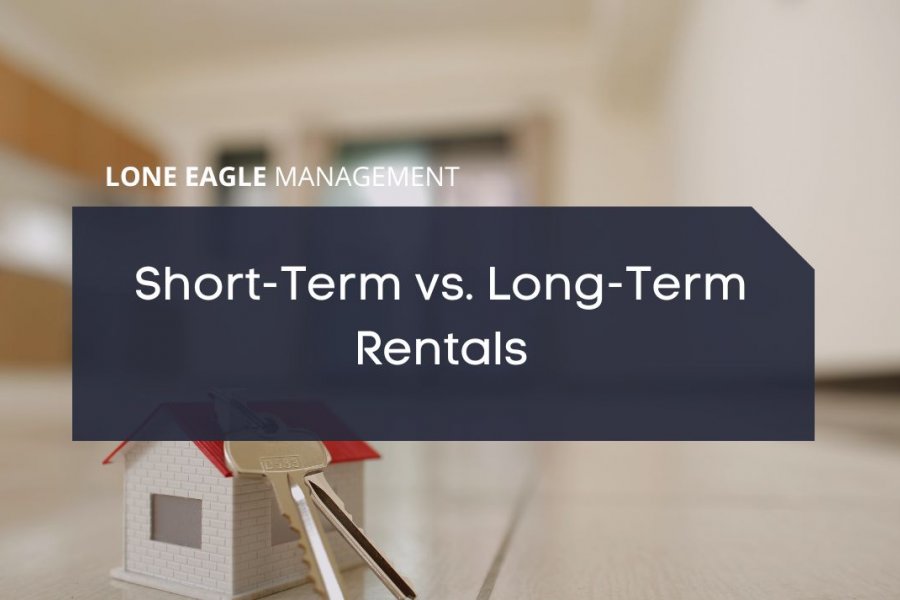
Key Takeaways
- Balance Profit and Stability- Short-term rentals can bring in more income, but they take more time and effort to manage. Long-term leases offer steady revenue and less daily involvement, making them a good fit for landlords who value consistency.
- Know Your Market and Commitment Level- The best rental setup depends on your goals and where your property is located. Short-term rentals tend to do well in busy or tourist-heavy areas, while long-term leases are a better fit for calm, residential communities.
- Professional Management Simplifies Both Options- Whether you rent short-term or long-term, having a reliable management team helps with compliance, communication, and peace of mind. It keeps things running smoothly while helping you get the most out of your investment.
Did you know that the type of rental agreement you choose can significantly affect your income, workload, and legal responsibilities as a landlord? Many property owners in New Jersey are realizing that choosing between short-term and long-term rentals is not just about personal preference. It’s about understanding the balance between profit potential and stability.
Short-term rentals can bring in higher returns per month, but they often come with more frequent turnover and management challenges. Long-term leases, on the other hand, offer consistent income and less hands-on involvement but may not generate as much revenue overall.
To help landlords make informed decisions, Lone Eagle Management put together this article comparing short-term and long-term rentals in New Jersey and explaining which option may suit your property goals best.
Reach Out to Our Team!
Choosing the Right Rental Strategy for Your Property
Understanding Short-Term Rentals
Short-term rentals are properties rented for a period typically ranging from a few nights to a few weeks. In New Jersey, these often attract visitors coming for business trips, events, or vacations near the Jersey Shore or the greater New York metropolitan area. These rentals can generate higher daily rates, especially during summer months or around major local events.

However, they also require a more active management approach. Cleaning, maintenance, and guest communication occur much more frequently than in traditional leases. Effective communication plays a key role in maintaining positive guest experiences and smooth operations.
Additionally, several municipalities in New Jersey, including Newark and Jersey City, have implemented specific regulations for short-term rentals.
These often include registration requirements, occupancy limits, and safety inspections. Landlords must also ensure they collect and remit the appropriate state and local occupancy taxes. Failing to comply can result in fines or restrictions on future rental operations.
Advantages of Short-Term Rentals
- Higher Income Potential: When managed efficiently, short-term rentals can earn significantly more than long-term leases, especially in high-demand areas.
- Flexibility: Landlords can adjust pricing seasonally, block dates for personal use, or adapt quickly to changing market conditions.
- Frequent Property Oversight: With guests checking in and out often, landlords or managers can monitor the property regularly to keep it in good condition.
Drawbacks of Short-Term Rentals
- Time-Intensive Management: The frequent turnover requires more effort in cleaning, scheduling, and communication.
- Higher Costs: Utilities, maintenance, cleaning, and furnishing expenses can reduce profit margins.
- Complex Regulations: Municipal and state rules differ, so compliance takes ongoing attention and documentation.

Given these challenges, most landlords who offer short-term rentals work with a property management company to handle guest coordination, maintenance, and compliance.
Discover More About Lone Eagle Management!
Understanding Long-Term Rentals
Long-term rentals typically involve leases lasting six months or longer, with one year being most common. These rentals provide housing for people who plan to stay for an extended period, bringing stability and consistent income.
In New Jersey, long-term rentals are governed by clear landlord-tenant laws that outline both parties’ rights and responsibilities. This structure helps protect landlords while providing tenants with security of tenure. The state’s strong demand for rental housing, especially in commuter areas near Parsippany, Newark, and Morristown, makes long-term leasing an appealing and stable investment.
Advantages of Long-Term Rentals
- Steady Cash Flow: Predictable monthly rent supports consistent income.
- Reduced Turnover: Fewer move-ins and move-outs lower administrative and maintenance costs.
- Simplified Management: With stable tenants, day-to-day involvement is minimal.
Drawbacks of Long-Term Rentals
- Limited Income Growth: Rent is fixed for the lease term and cannot be adjusted to market changes until renewal.
- Reduced Flexibility: The property cannot be used personally or switched to another rental model mid-lease.
- Tenant Risk: Late payments or lease violations can result in costly eviction proceedings if not handled properly.

For long-term leases, professional property management is still valuable. A skilled management company handles tenant screening, rent collection, lease enforcement, and property maintenance, which reduces stress and risk for landlords.
Comparing Short-Term and Long-Term Rentals
Short-term rentals typically generate higher gross income but come with more active involvement and compliance responsibilities. Long-term rentals offer stable revenue and easier operations, but at potentially lower profit margins.
Short-term rentals work best for landlords who have time to oversee property details or those who hire an experienced management team. Long-term rentals fit owners seeking reliability and simplicity. The right choice depends on your goals, location, and how much time you want to dedicate to property management.
In markets like northern New Jersey, a mixed approach can also work well. Some landlords operate a few properties as short-term rentals in high-demand areas while maintaining others as long-term leases for steady income. Managing both strategies, however, requires expertise in marketing, pricing, and compliance, areas where professional management makes a big difference.
This blended approach can serve as a form of diversification, helping landlords balance risk and return across different rental types.
Bottomline
Both short-term and long-term rentals can be profitable for New Jersey landlords, but each comes with its own demands and rewards. Short-term rentals can deliver higher returns when managed efficiently and within legal boundaries, while long-term leases provide consistent income and less day-to-day effort.
The ideal approach depends on your investment goals, property location, and how actively you want to be involved in operations.
Lone Eagle Management helps property owners throughout Morris County and surrounding areas achieve success with both short- and long-term rental strategies. Our team manages every aspect of your rental, from tenant screening and maintenance to financial oversight and legal compliance, so you can enjoy stress-free ownership and reliable income.
Contact Lone Eagle Management today to learn how our experienced team can help you maximize your property’s potential while maintaining peace of mind.